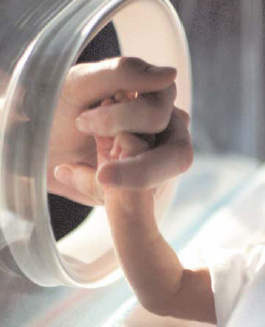I have been a certified CPR/AED Trainer for 8 years. I started my own training company in 2009 with my husband. My professional life revolves around training everyone from Doctors and Nurses to Moms and Dads how to perform CPR and react in an emergency. For the last 3 years, we have trained over 1,200 students annually. Ask me anything and everything about CPR, Saving Lives and training manikins.
HI "Oops"
Don't worry, most people seem to forget everything within a week. Here are some Rules of Thumb that will help jog your memory (if the time comes):
1) If someone is unresponsive, Call 9-1-1 and Get an AED. (Or, if someone else is there, have them do it).
2) Push Hard and Fast on the Chest.
By doing those 2 (actually 3) things, you will be helping the unresponsive person. And, the AED usually has CPR instructions and a 9-1-1 dispatcher can usually help you with CPR as well.
I hope this helps!
Hi Again Ellen91!
By just doing CPR, it is unlikely that someone will be revived (I am going to call revivied-concious). If you have used an AED (Automated External defibrillator), than the chances of the person coming back do increase. Here is a link to a professional rescue (thank you Bondi Beach): https://www.youtube.com/watch?v=_8tZT2Jx8H0 You can see CPR, the use of an AED, and the person being revivied. However, they are still in need of medical attention.
Even though the victim is revivied, notice that the AED is left on and the guards continue to assist with breathing. This is vital as the body is weak and may 'convert' (meaning go back into the faulty heart rhythm).
Anyone who has been unconcious-no matter how long, should be seen by a healthcare provider.
Hi David,
Not nessecarily. In teaching CPR I have found that performance depends more on fitness than gender. I have seen small women with proper form out-perform men 3 times their size who thought they could "muscle-through". No matter the person's gender, they need to have a class with an instructor to learn proper form. Giving compressions with straight arms and correct body position uses leverage and upper body weight as a ballast. Without practicing the physics behind a good compression, a person will not be able to perform.
Good Questions Kenzee,
If someone is choking, and the Heimich fails to clear the airway, then yes, the person will become unconscious. At this point, lower them to the floor and start CPR. Make sure someone is calling 9-1-1 and getting an AED (if avaliable). Your hard and fast compressions on the chest might clear the airway (pressure build-up behind the obstruction). Continue to give breaths and compressions until help arrives.
Nurse Practitioner
 As gender roles continue to evolve, are you seeing a rise in the % of male nurses?
As gender roles continue to evolve, are you seeing a rise in the % of male nurses?
CBP Officer
 What are the telltale signs you look to indicate someone's lying?
What are the telltale signs you look to indicate someone's lying?
Fashion Forecaster
 Are people in the fashion world as rotten as those in Devil Wears Prada?
Are people in the fashion world as rotten as those in Devil Wears Prada?
Hi Jer,
Yes, I have performed CPR myself. This is a great question to ask your CPR insructor. In order to teach CPR, an instructor need not have done CPR to a person-so, it can be like taking driving lessons from someone who just read the book, but has never driven the car.
To protect privacy, I can tell you that I have responded a few times, both professionally and privatly. I have responed to drownings, car accidents and random public incidents. In each case, adreniline and training take over. I will say that having by-standers around who were willing to call 9-1-1 was helpful. On the other hand, having by-standers around who wanted to, lets say, give their 2-cents, was not as helpful. I remember one emergency where a person insisted that fanning a person getting CPR would revive them, so I was doing CPR while dodging a person whipping a paperfan in the vicitm's face. :)
Hi Antioch,
When an "EMT" says "Clear" they are telling the rest of the team to not touch the vicitm. If someone is touching the victim when the AED shock goes through, two things happen:
1) The person touching the victim will get some of the AED shock
2) The victim will not get the full power of the shock.
TW42:
Technically, a person who needs CPR does not have the ability to give/deny consent. They are unconcious, which legally means they have given you "implied consent."
Now, to be brutally honest, this is America and you can be sued for anything. If a popular fast-food chain can get sued to too hot coffee, not once, not twice, but three times---
The Good Samaratin Law exists to protect civilians from losing a lawsuit. However, most states do require that the civilian responder have had some form of CPR training-so, make sure you tak a class.
-OR-
 Login with Facebook
Login with Facebook (max 20 characters - letters, numbers, and underscores only. Note that your username is private, and you have the option to choose an alias when asking questions or hosting a Q&A.)
(A valid e-mail address is required. Your e-mail will not be shared with anyone.)
(min 5 characters)
By checking this box, you acknowledge that you have read and agree to Jobstr.com’s Terms and Privacy Policy.
-OR-
 Register with Facebook
Register with Facebook(Don't worry: you'll be able to choose an alias when asking questions or hosting a Q&A.)